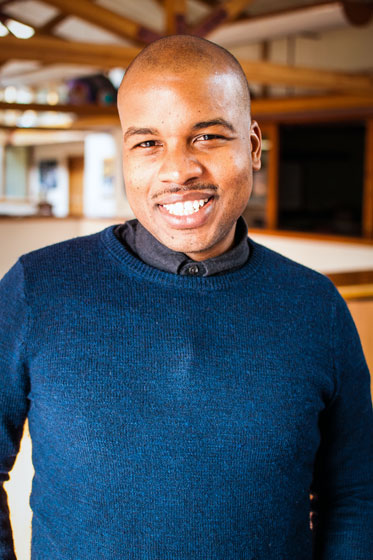12/21/18
by Lisa Evans, reprinted courtesy of California Shakespeare Theater
black odyssey playwright Marcus Gardley and dramaturg Lisa Evans connected across time and space (or in layman’s terms: had a phone call) for Cal Shakes’ 2017 production. They spoke about recontextualizing texts, the tradition of oral history in Black communities, and expanding understanding of Black history.

Lisa Evans: What’s so beautiful about this play is how you’ve taken this literary archetype of a hero’s journey and portrayed it not through the traditional mythology but through the lens of delving into this buried history. What was the process like for you in reframing this classical text and recontextualizing it?
Marcus Gardley: That’s a great question. Well, you know I’m obsessed with myths and legends and [how] a group of people from a specific culture explain creation. How do they explain divinity? How do they explain why the sun revolves around the earth; why there’s a night time and a day? I think that this act of contextualizing, of telling stories so that we have beliefs is the point of art.
What I tried to do with this play is that for one, wanted to retell a story because I feel like, especially in the African American oral tradition, the retelling is actually the point. My great- grandmother always talks about this because she’s considered the griot in our family. She really talks about that the point of the story is the retelling of it. She says “when I tell a story and you re-tell it you can add your own point to it; you can add your own spin to it. Then you add a little piece to it and you make it yours.” This retelling allows for a certain generation and new way of thinking to arise.
What I love about The Odyssey is that it’s the story of a man who is essentially lost and he’s lost not necessarily because he can’t find his way but because he has inner turmoil. It’s really [a story about] a man who’s on a journey to self-discovery. Meanwhile, his wife and son are left alone and have to fend for themselves and so it’s sort of a parallel story. I really love that sort of structure in storytelling where you’re waiting the whole time to see the hero, if you will, and his family reunite. For me, this was sort of the perfect context to tell the story of the history of African Americans in the United States. I feel like as a culture we are a group of people who have had an immense amount of struggle [and] this ability to survive against all odds really is remarkable and is unlike any other group of people in history. I wanted to write something that both celebrated but really gave audiences a chance to sit for two hours and look at the breadth and width of this really dynamic culture because often times when people are exposed to African American culture they get a slice at a time; Frederick Douglass did this here, Harriet Tubman did this here. But I really wanted people to sit through the whole breadth and width of it.
The chorus asks you to step in [Ulysses’] shoes because this being lost and being found really reflects to me the central point of the culture. What makes African American culture so fascinating is that there is something greater than who we are that unites us and that always allows us to get through the turmoil. We are always found, you know? We are always found when we are lost.
black odyssey will be at Trinity Rep January 3 – February 3, 2019.